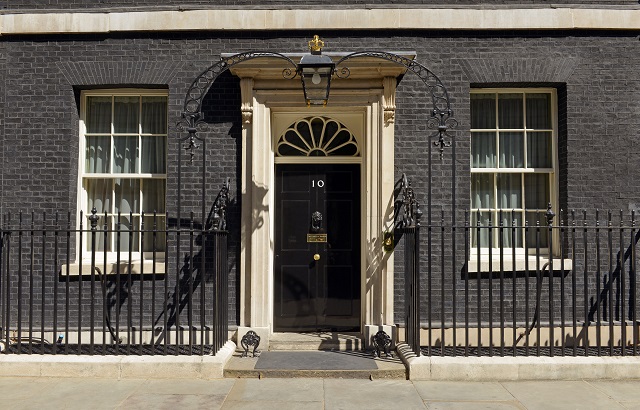Former Chancellor of the Exchequer Rishi Sunak is set to be named as UK prime minister following Penny Mourdant’s decision to drop out of the leadership race at the last minute.
He will replace Liz Truss, who resigned on 20 October 2022 after 45 days in office.
Sunak was in the running to become prime minister several weeks ago but lost the Conservative Party leadership election to Truss.
He will have a big job calming the stormy financial markets that have suffered terribly since Truss became prime minister.
No more ‘Santa Sunak’
Sarah Coles, senior personal finance analyst at Hargreaves Lansdown, said: “This isn’t the same Sunak who gave Santa a run for his money during the pandemic. He’s going to have an incredibly tight hold on the purse strings. Jeremy Hunt is likely to stay at Number 11 with his mantra of tough decisions and spending cuts. It means we may not be able to rely on extra help when we’re facing horrific price rises next April.
“It was partly Sunak’s commitment to keeping a lid on spending, and higher levels of taxation that persuaded Conservative Party members that there had to be an easier answer during the last leadership election. The short and messy premiership of Liz Truss may well have cemented the opinion that right now there’s no alternative.
“Anyone who relies on benefits to make ends meet will be crossing everything that Sunak’s previous commitment to uprate benefits with inflation in April will stand the test of time. However, given that his Chancellor has thrown the uprating into doubt, there are no guarantees at this stage.
“Those on the lowest incomes have been hit hardest by rocketing prices, so have been left with impossible challenges. If benefits don’t keep pace with inflation in April, this will make life even more impossible. On the other side of the balance, Sunak will be dealing with a divided party, nervous about re-election. It’s going to make it more difficult for him to pass legislation which is going to leave so many voters so much worse off.
“Sunak’s previous approach to energy support was the lump sums we’re receiving now. He opted for universal help, but at a far lower level than Truss subsequently introduced. Hunt has pledged more targeted support for those on the lowest incomes from April. This could mean more lump sums, but on a means-tested basis. If the system is developed to offer help to those who need it, this may be enough to help us through a really difficult period. However, if the line is drawn so that average earners are out in the cold, it could be devastating.
“At the same time, news emerged over the weekend that Jeremy Hunt is planning to extend the freeze on income tax thresholds into the next parliament. By 2027/28, this is expected to cost taxpayers £5bn ($5.64bn, €5.74bn) a year more, as millions of people are dragged into paying higher rate tax. It’s an extension of an existing policy brought in by Rishi Sunak, so while it isn’t guaranteed to happen, the change of prime minister may not alter any plans already in place.”
Can Sunak bring stability after pension chaos?
A big area for the Conservative Party has been its position on the pensions triple lock.
Outgoing prime minister Truss reiterated the government’s commitment to reinstate the triple lock in the 2023-24 financial year. But the government has been flip-flopping on the triple lock for a couple of months.
If the triple lock stays, state pensions could be boosted by a whopping 10.1% in 2023/24. The increase would be in line with September’s Consumer Prices Index (CPI) inflation figure of 10.1%.
Under triple lock rules, state pensions increase every year according to inflation, earnings or 2.5% whichever is highest. Wage growth figures for May-to-July 2022 came in at 5.5%.
Helen Morrissey, senior pensions and retirement analyst at Hargreaves Lansdown, added: “Liz Truss’s protestations that the triple lock would be protected were placed against a backdrop of her chancellor Jeremy Hunt refusing to confirm any such thing. Truss has now gone, and if Hunt remains in place the new Prime Minister will be under pressure to confirm whether it stays or goes.
“Rishi Sunak has defended the triple lock in the past saying pensioners are a vulnerable group within society and that it should be protected. However, he was the one who took the decision to suspend it last year as the furlough scheme distorted earnings figures. Given the current need to cut back on costs, he may feel he has little choice but to do it again. It will be a tricky decision to take though given rampaging inflation has left many pensioners in severe financial difficulty.
“Bringing calm to the gilt markets will be another priority after the mini-budget brought bond market chaos and caused defined benefit pension schemes using liability driven investment to run into difficulties.
“The Bank of England’s bond buying programme helped stabilise the markets, but governor Andrew Bailey was quick to point out this support was time limited leading to concerns within the industry that gilt yields could spike again causing further upheaval. With the medium-term fiscal plan and the crucial Office for Budget Responsibility report looming, Sunak will be mindful not to cause another gilt market horror show.”








